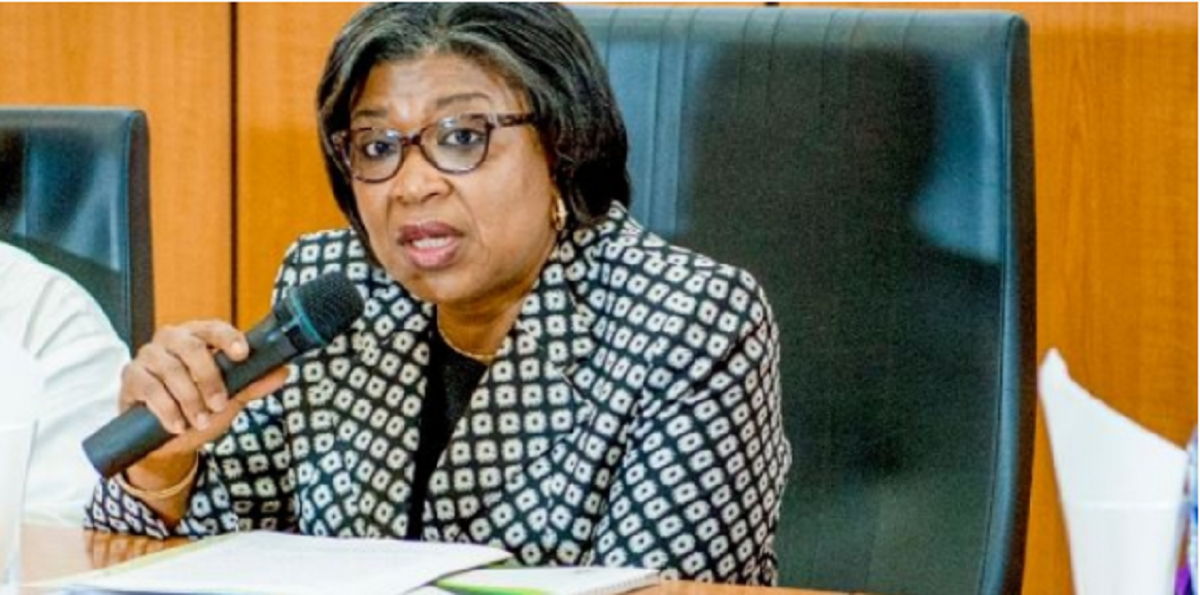DMO has said that Nigeria’s Debt Sustainability is now threatened under Buhari administration.
NewsOnline reports that Nigeria now faces the risk of being unable to sustain its rising national public debts unless urgent actions are taken to curtail expenditure and increase the country’s revenues.
The Debt Management Office (DMO), which oversees the government’s debt issuance and management, raised the alarm at the weekend.
ALSO: I Have Health Guarantee Of 30yrs, I’m Fit For Presidency- Kwankwaso
DMO warned that while Nigeria’s loans may still be within acceptable range of the country’s economic size, the country’s ability to sustainably meet the obligations on such loans is now under threat.
According to the DMO, with total public debt stock of N42.8 billion by the first half of this year, some 23.06 per cent of the country’s Gross Domestic Products (GDP), Nigeria is still within its benchmark limit of 40 per cent debt-to-GDP ratio.
World Bank-International Monetary Fund (IMF)’s limit is 55 per cent for Nigeria’s peer group and 70 per cent for Economic Community of West African States (ECOWAS).
Director General, Debt Management Office, Ms Patience Oniha, said beyond keeping within debt-to-GDP ratio, it is important that the public debt is sustainable and government is able to service its debt without the risk of distress.
Reviewing revenue budgets and actuals against actual debt service over the past eight years, Ms Oniha said the debt service-to-revenue ratio is “high”.
“Dependence on borrowing and low revenue base are now threatening debt sustainability,” DMO chief said.
The country’s chief debt management officer spoke at the annual conference of the Capital Market Correspondents Association of Nigeria (CAMCAN) at the weekend in Lagos. She spoke on the theme: “Nigeria’s Public Debt and the Capital Market”.
Data provided by the Budget Office of the Federation showed that Nigeria has consistently over the past eight years significantly underperformed its revenue target. For instance, while the country had budgeted a revenue target of N7.2 trillion in 2018, it generated only N3.9 trillion, about 54 per cent of revenue target. In 2019, it achieved about 59 per cent with revenue budget of N7 trillion and actual of N4.12 trillion.
Revenue target and actual stood at N5.4 trillion and N3.96 trillion and N6.64 trillion and N4.64 trillion in 2020 and 2021 respectively. In the current budget, while the country had set a revenue target of N5.82 billion, it only achieved 63 per cent or N3.66 trillion by July 2022.
Nigeria has been using more than three-quarters of its revenues to service debts. Debt-service to total revenue ratio stood at 61.3 per cent in 2020, rose to 90.9 per cent in 2021 and currently stands at 84.5 per cent. Debt-service-to-total revenue was about 32.7 per cent in 2015.
“Nigeria’s public debt stock has grown consistently over the past decades and even faster in recent years. Consequently, debt service has continued to grow,” Ms Oniha said.
She pointed out that Nigeria’s low revenue base compounded by dependence on crude oil resulted in budget deficits over the past decades, putting pressure on the country’s debt sustainability.
“The outlook shows that both the local and international markets are becoming tighter and interest rates are rising, thus priority should be less on borrowing and more on revenues from oil and non-oil sources,” Oniha said.
She said while efforts at increasing non-oil revenue are yielding positive results, urgent actions are required to moderate the level of new borrowings and ensure that the public debt is sustainable.
She outlined that government should, as a matter of urgency, rationalise expenditure and accelerate the growth in revenues, including implementation of strategic actions to boost tax administration and efficiency.
She said it was unacceptable that Nigeria has the lowest revenue-to-GDP ratio among a list of country sampled by the World Bank noting that an efficient tax administration would ensure greater compliance to remittances devoid of all forms of evasions in the system.
According to her, most countries around the world have placed more emphasis on taxation as a principal source of funding for the government while reverse is the case in Nigeria.
Ms Oniha also advised that “borrowing should be tied to projects and some of the projects should generate commensurate revenues to service loans used to finance them”.
She called for sale of government assets to unlock funding, adding that physical assets such as idle or underutilised properties could be redeveloped for commercialisation to generate revenue
